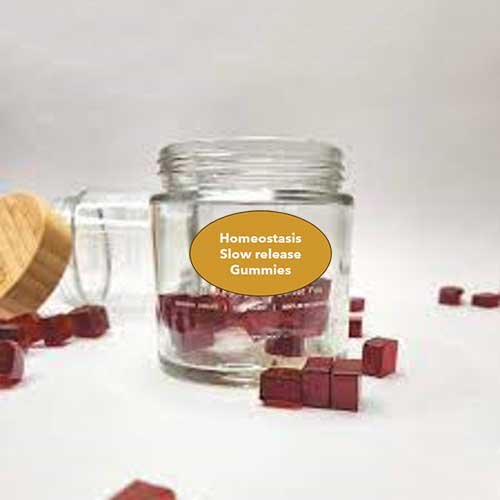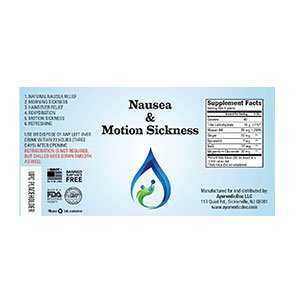Sleep : All Night-All Right
$89.00
To get the most out of our sleep, both quantity and quality are important. Teens need at least 8 hours—and on average 9¼ hours—a night of uninterrupted sleep to leave their bodies and minds rejuvenated for the next day. If sleep is cut short, the body doesn’t have time to complete all of the phases needed for muscle repair, memory consolidation and release of hormones regulating growth and appetite. Then we wake up less prepared to concentrate, make decisions, or engage fully in school and social activities.
Description
When we sleep well, we wake up feeling refreshed and alert for our daily activities. Sleep affects how we look, feel and perform on a daily basis, and can have a major impact on our overall quality of life.
To get the most out of our sleep, both quantity and quality are important. Teens need at least 8 hours—and on average 9¼ hours—a night of uninterrupted sleep to leave their bodies and minds rejuvenated for the next day. If sleep is cut short, the body doesn’t have time to complete all of the phases needed for muscle repair, memory consolidation and release of hormones regulating growth and appetite. Then we wake up less prepared to concentrate, make decisions, or engage fully in school and social activities.
How Does Sleep Contribute to All of These Things?
Sleep architecture follows a pattern of alternating REM (rapid eye movement) and NREM (non-rapid eye movement) sleep throughout a typical night in a cycle that repeats itself about every 90 minutes.
What role does each state and stage of sleep play?
NREM (75% of night): As we begin to fall asleep, we enter NREM sleep, which is composed of stages 1-4
N1 (formerly “stage 1”)
-Between being awake and falling asleep
-Light sleep
N2 (formerly “stage 2”)
-Onset of sleep
-Becoming disengaged from surroundings
-Breathing and heart rate are regular
-Body temperature drops (so sleeping in a cool room is helpful)
N3 (formerly “stages 3 and 4”)
-Deepest and most restorative sleep
-Blood pressure drops
-Breathing becomes slower
-Muscles are relaxed
-Blood supply to muscles increases
-Tissue growth and repair occurs
-Energy is restored
-Hormones are released, such as: Growth hormone, essential for growth and development, including muscle development
REM (25% of night): First occurs about 90 minutes after falling asleep and recurs about every 90 minutes, getting longer later in the night
-Provides energy to brain and body
-Supports daytime performance
-Brain is active
WHAT HAPPENS WHEN YOU SLEEP?
– dreams occur
– Eyes dart back and forth
– Body becomes immobile and relaxed, as muscles are turned off
Herbs For Insomnia & To Promote Better Sleep
Valerian (Valeriana officinalis)
The root of this tall perennial flowering plant is dried and used as a calming agent and sleep aid. According to numerous studies, valerian, native to Europe and Asia, may help reduce the amount of time it takes a person to fall asleep and also help increase the duration and quality of sleep.
If you purchase capsule form, it is recommended that you take about four an hour or so before bed. The impact should last about four hours. If you find yourself waking up in the night, unable to return to sleep, take another four. Most people find this an effective dosage. Be sure only to take valerian for three weeks or so before switching to another herbal remedy as your body will get used to it. After you switch for a couple of weeks, you can go back to the valerian, and it should have the same impact that it initially had.
Passionflower (Passiflora incarnata)
As an herbal remedy, passionflower has been used for a very long time to ease mental stress and slow the down a “running” mind. Historically it has been used both as a sleep aid and a stress reliever.
The chemical composition of this plant is nothing short of amazing. Scientific studies confirm the sedative properties of this magnificent plant, mostly when used in combination with other herbs. Rich in flavones, alkaloids and coumarins, passionflower extract is also found to contains GABA, an inhibitory neurotransmitter, that can play role in regulating the excitability and regulation of muscle tone while it feeds and relaxes nerves.
When used appropriately, passionflower is safe for children and persons with health conditions and taken in the form of a tincture. Between 30 and 60 drops are recommended before bed or other time you need to relax and unwind.
California Poppy ( Eschscholzia californica)
California poppies are happy little plants with fern-like foliage and brilliant yellow, orange and red flowers that thrive in dry conditions. Very early Spanish explorers called the plant “Copa del Ora,” meaning “cup of gold.” because of the legend that said that the orange petals were gold filled.
Although not filled with gold, the California poppy is not only a good food source but also has some potent medicinal properties. Historically used for such illnesses as toothaches, headaches and sores, this perky little plant has also earned a reputation as a strong sedative. It can ease insomnia that results from restlessness and anxiety and can be used even for children.
Herbs For Early Morning Awakening
If you have a pretty easy time going to sleep but find you wake up way too early, you could have early morning awakening or morning insomnia. The cause of morning insomnia may be related to a spike in cortisol, a stress hormone.
In addition to adopting a healthy, whole food diet, and exercise program, there are several herbs that can be used to help with this type of insomnia.
Ashwagandha (Withania somnifera)
Considered one of the most powerful herbs in Ayurvedic practice, ashwagandha, native to India, has been used since ancient times for a number of conditions.The plant itself is in the same family as the tomato and has tiny, red, raisin-like fruit. Although the leaves and the fruit of this plant have therapeutic value, it is the root that is most potent. Used commonly by people to strengthen their immune system after an illness, research published in the Indian Journal of Psychological Medicine shows that this herb also reduces chronic stress, by reducing cortisol levels, without taking away energy. Study participants who took the herb also experienced feeling more relaxed, mentally calm, had reduced anxiety, less depression, and reduced insomnia. Most people take 300mg twice a day over a long period to experience all of the great benefits of this totally safe herb.
Magnolia Bark (Magnolia officinalis)
Magnolia bark, used extensively in Chinese medicine, is known to reduce cortisol levels and promote relaxation of both the body and the mind. Not only can this have a positive impact on improving duration and quality of sleep but it can also help reduce the risk of obesity and type ll diabetes.
Italian studies found that magnolia bark eased anxiety and when bark extract was combined with magnesium it improved sleep, mood, reduced anxiety and depression in menopausal women.
Herbs For Infrequent Insomnia
If you suffer from infrequent bouts of insomnia where you have a hard time getting to sleep or awaken and can’t fall back to sleep you may want to try the following herbal teas.
Lavender is a woody shrub with a very pleasant aroma and lovely purple flowers. Although this herb is native to mountainous areas of the Mediterranean, it is now grown all over the world including the United States, Australia, and southern Europe. A cup of warm lavender tea before bed is a great way to promote relaxation which can help with anxiety, depression, stress and insomnia.
German Chamomile ( Matricaria recutita L., )
The tops of these pretty daisy-like flowers are have been used to make a calming and soothing tea for hundreds of years. The same tops are also used to make extracts, capsules and pills. Chamomile as a topical cream is also quite effective at reducing inflammation, redness and itchiness of the skin and the scalp.









Reviews
There are no reviews yet.